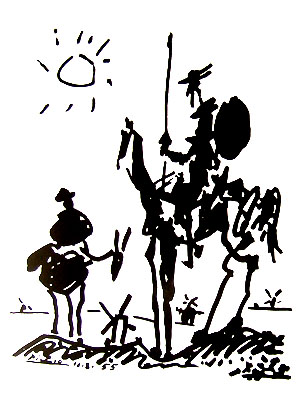The Role of Desire in Feeling and Purpose
Desire is not the same as having a goal. It is possible to have goals and no real desire, or desire and no goals. Ideally goals and desires are unified or at least compatible. Desire suffers from too many goals. While some goals (such as pleasure) can be natural, most goals are constructed by the ego. Goals can be part of a creative process, but very often they are intended as means to an actual illusionary end of becoming whatever it is that the person believes is lovable.
Basic desires are drives reaching out for love and pleasure. The working of basic desires are sometimes said to be the pleasure principle. Basic desires are very similar for everyone.
Obstacles in the world may modify a goal and also they may modify a desire. Obstacles, to a point, lead to a 'maturing' of desire.Whatever it is that modifies and holds back basic desires for a time is called the reality principle. The reality principle is supposed to be in service of the pleasure principle. There is a limit however, to how much a desire can be modified and remain a desire.
Delaying gratification is a well-known concept. It illustrates how basic desires can be modified in the service of greater ultimate pleasure. One of the hallmarks of 'adultness' is the ability to do something one does not want to do, in order to obtain something one does want. Hence it can be useful to think of a distinction between want to's and choose to's. It is possible to construct a chain of 'bargains' so extensive that the undesired activity has a life of its own, and the original desire is not operating. When conforming to the goals of others and holding back straightforward gratification reaches a point, it constitutes the negation of desire. Negation of desire is negation of the self. When goals are no longer close enough to be sustained by desire, they are sustained by the will.
It is when a potential source of pleasure such as a parent is also an obstacle that desire becomes a problem. Early relationships that are not straightforward often make desire into a problem. Even a loving parent or care-giver that down deep feels they are not enough will, in a thousand little ways, transmit the message that having desire is bad or dangerous. Instead of more healthily saying no, the caregiver acts like a crime has been committed by the child in wanting something. Attention becomes limited to what seems to be provided already, that is, what is safe to be interested in.
Too much self-negation results in the loss of desire, simple desire as well as complex desire. It does not matter that a lot of comfort is available. Two phrases, 'gilded cage' and 'golden handcuffs' are two metaphors that describe how even big rewards do not always fully compensate for the loss of freedom of desire. Loss of desire leads to living entirely by the will, which is exhausting and depressing. Many people find in mid-life, or slightly earlier, that while they are willing to ask the question of what they really want to do, they cannot answer. Their minds can only think about 'what is a good thing to do.
